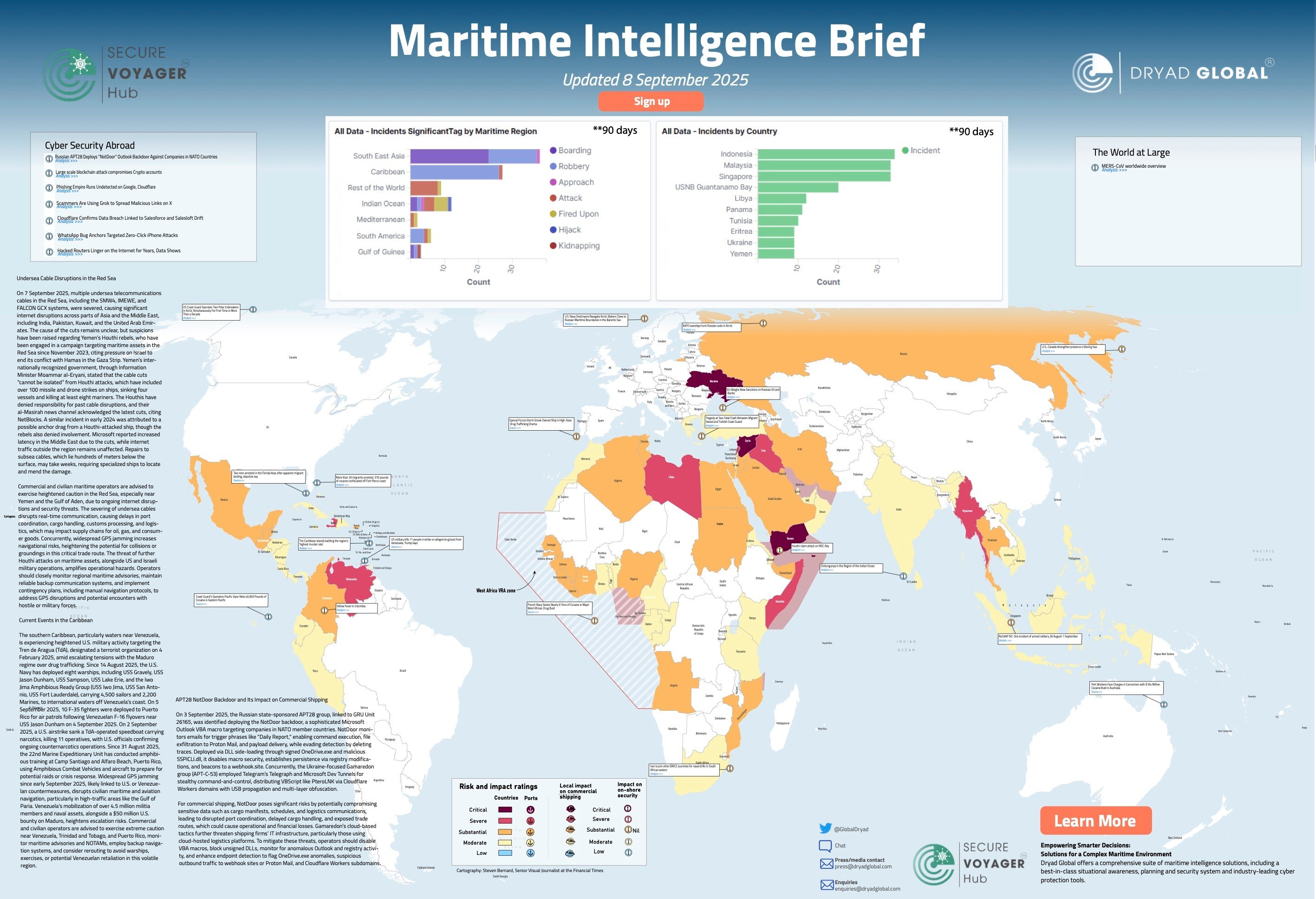The global maritime domain continues to face escalating risks across geopolitical, cyber, and operational fronts. This week’s analysis highlights three critical developments with direct implications for shipping and supply chain security.
Undersea Cable Disruptions in the Red Sea
On 7 September 2025, multiple undersea telecommunications cables—including SMW4, IMEWE, and FALCON GCX—were severed in the Red Sea. The incident disrupted internet connectivity across India, Pakistan, Kuwait, and the UAE. While the cause remains unclear, suspicions point to Yemen’s Houthi rebels, who have previously targeted maritime infrastructure.
The disruption has already created operational delays in port coordination, cargo handling, and customs processing, with increased GPS jamming further compounding navigation risks. Vessel operators are advised to:
• Monitor regional advisories closely.
• Maintain reliable backup communications.
• Implement contingency navigation protocols.
Escalating U.S. Naval Activity in the Caribbean
The southern Caribbean is seeing intensified U.S. military deployments in response to Venezuela’s Maduro regime and the Tren de Aragua (TdA) criminal network.
• Eight U.S. Navy warships, including USS Gravely and USS Iwo Jima, are positioned off Venezuela’s coast.
• F-35 patrols have been launched from Puerto Rico.
• Amphibious training is underway with 2,200 Marines conducting exercises in Puerto Rico.
For commercial shipping, the risks include:
• GPS jamming across key routes such as the Gulf of Paria.
• Heightened potential for misidentification near U.S. or Venezuelan military assets.
• Possible rerouting to avoid escalation zones.
Cybersecurity: Russian APT28 Deploys “NotDoor”
The Russian state-sponsored group APT28 has been detected deploying NotDoor, a backdoor exploiting Microsoft Outlook macros. The malware enables:
• Command execution and data exfiltration.
• Disruption of logistics communication.
• Exposure of sensitive cargo and routing information.
The attack poses significant threats to maritime operators reliant on Outlook and cloud-hosted logistics systems. Recommended mitigations include:
• Disabling VBA macros.
• Blocking unsigned DLLs.
• Monitoring for anomalous traffic and OneDrive.exe behavior.
Conclusion
These developments underline the increasing convergence of physical, geopolitical, and cyber threats in the maritime sector. Operators must adopt layered security measures and maintain situational awareness to safeguard vessels, crews, and cargo.
👉 Download the full Maritime Intelligence Brief for detailed analysis: Dryad Global MIB




